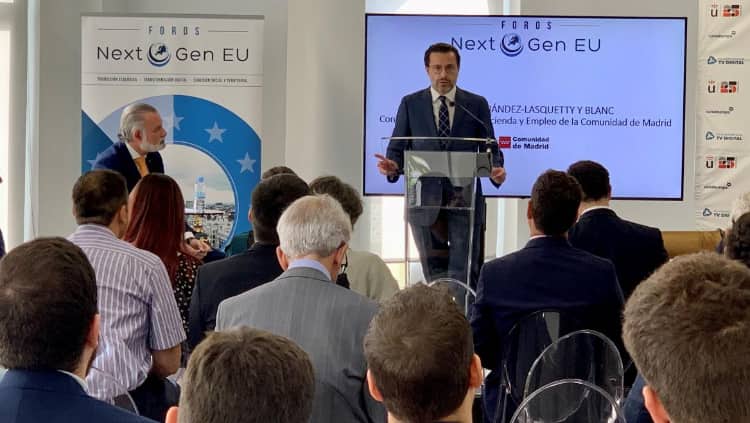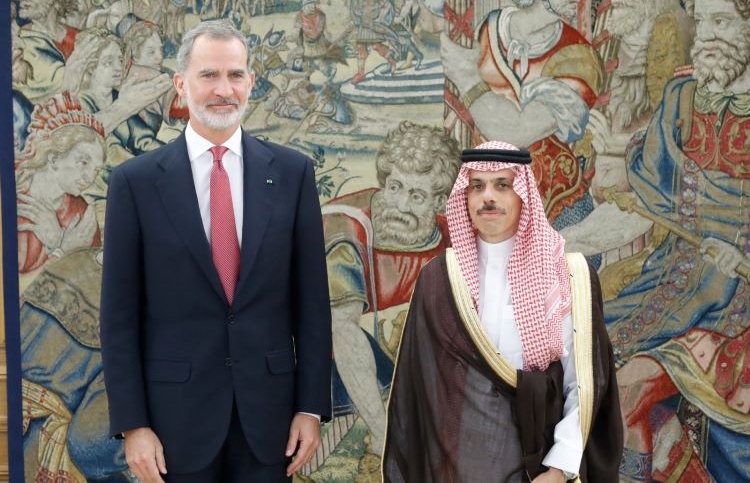The Diplomat
The Councillor for Economy, Finance and Employment of the Community of Madrid, Javier Fernández-Lasquetty, yesterday criticised the attitude of Pedro Sánchez’s Government when it comes to ensuring that European funds from the EU’s Recovery, Transition and Resilience Plan reach companies and the self-employed.
During the inauguration of the Next Gen EU Forum, organised by Canal Europa, Grupo Prestomedia and Aquí Europa, with the collaboration of the Community of Madrid, Telefónica and the Rey Juan Carlos University, Fernández-Lasquetty complained about the lack of dialogue between the Government and the Autonomous Communities and denounced the “slowness”, lack of efficiency and excessive bureaucracy in getting the funds to companies and the self-employed “who, he said, are the ones who with their activity reactivate the economy and create jobs”.
He referred to the management of the Perte (Strategic Projects for Economic Recovery and Transformation), indicating that, despite the fact that they have all been approved, until April only just over 4,000 million euros of the 30,000 planned, 13.5% of the total, had been put out to public tender, and of these, the majority are still unresolved.
Lasquetty assured that Madrid will continue to demand a change of direction in the allocation of funds, while at the same time speeding up the management of those that are granted to it. In this regard, he assured that “despite having started to receive them at the end of last year, the Community of Madrid is already processing 218 calls for proposals for a value of more than 425 million euros, 47% of the total budgeted”.
He also considered it necessary to approve fiscal stimuli aimed at families and companies, as well as calling for the autonomous communities to be involved in establishing investment priorities. In this way, he added, it would be possible to increase the degree of execution, which is barely 7.1% of planned expenditure for 2021, according to reports from different bodies.
He said that it would also serve to increase the impact of the funds on the national economy, which, according to the Bank of Spain’s estimate, would currently be around 0.3% of GDP, a very modest result compared to the 1% originally planned.
Maria Canal Fonctuberta, the European Commission’s economic affairs adviser, followed the Madrid councillor with an overview of the situation regarding the allocation of funds to different countries, pointing out that nearly 100 billion euros have already been disbursed. He recalled that Spain was the first country to receive a first payment of ¤9 billion and that its request for a second payment of another ¤10 billion is being assessed.
Experts from different fields also participated in the Forum in round tables that analysed issues such as the PERTE, the role of the regions in the management of the Next Generation Funds, the ecological transition and the Digital transformation, with special attention to innovation, modernisation and digitisation of the industrial fabric and small and medium-sized enterprises.







